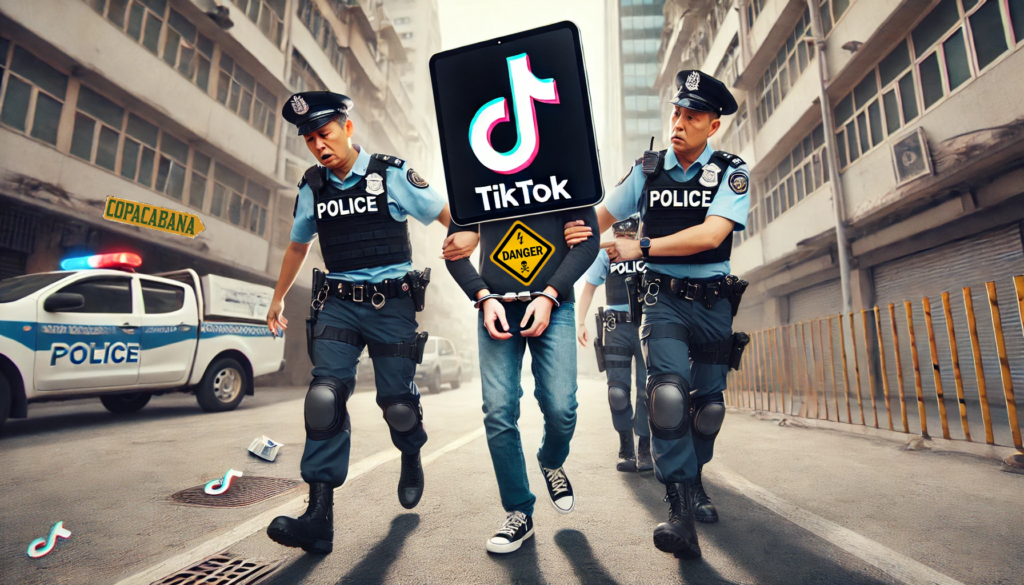For this week’s GME3 we have an update on Bill S-269, which aims to provide a national framework for gambling ads, a new call from the U.S. Surgeon General to put a warning label on social media apps, and the FTC’s case against TikTok being referred to the Department of Justice for alleged COPPA violations. Read the full stories below!
Gambling
Bill Needs Ad-ditional Time?
Bill S-269, An Act respecting a national framework on advertising for sports betting, has now passed through its second reading in the Canadian Senate. Initially introduced in the summer of 2023 by Senator Marty Deacon, Bill S-269 aims to create a federally mandated framework around gambling advertising.
After sports betting became legal in Canada in 2021, gambling ads have proliferated Canadian media, sports broadcasts, and even physical ad space. One CBC investigation from the beginning of 2024 found that, between betting company logos, commercials, sponsored segments and any time betting odds appeared on screen, gambling advertisements took up over 20% of the airtime in sports broadcasting on average.
Prolific sports betting ads were an especially noticeable issue here in Ontario, where a regulated market for sports betting and online gambling was launched in early 2022. Today the Ontario market is massive, with Ontarians placing billions of dollars in wagers each year. In response, the AGCO released new standards related to how companies are allowed to advertise their services, namely by banning athletes, influencers, and other celebrities from appearing in betting ads. For the most part at least – some platforms continue to use athletes in their advertising to promote responsible gambling initiatives. Senator Deacon has called this exception to the rule a “truck-sized loophole” in the AGCO’s ad standards.
Unfortunately, there is less time than we think for Parliament to pass Bill S-269. There are roughly 16 months left of the current Canadian Parliament if the next federal election occurs on schedule in October 2025. And, as of tomorrow, Parliament will be beginning their summer break for the remainder of July and August, and are set to reconvene in mid-September. If the House cannot pass Bill S-269 before they are dissolved before the next election, all legislation in the works is dissolved with it. With this in mind, Senator Deacon claims that her Bill must reach the House before Christmas to ensure that it will be passed in time.
Luckily for Senator Deacon, her Bill seems to be receiving general support from Parliament. The NDP and Liberal parties are both vocally supportive, while the Bloc Québécois and Green parties need more time to study and discuss the motion. The Conservatives and three independent representatives have so far declined to comment.
With broad support from major political parties, the passage of Bill S-269 appears promising. However, the legislative timeline is tight, and swift action will be required to ensure its success before the next federal election.
Media
Scroll At Your Own Risk
Earlier this week U.S. Surgeon General Vivek Murthy published an opinion piece in The New York Times calling on Congress to require a “tobacco-style” warning for people visiting social media sites.
In his (rather scathing) piece, Murthy argues that the mental health crisis among youth is an “emergency” with social media emerging as an “important contributor.” Murthy claims that adolescents who spend more than three hours a day on social media are two times as likely to experience anxiety and depression symptoms. The average daily use for this demographic, as of the summer of 2023, was 4.8 hours.
The American Psychological Association concurs with this number, as they found that teenagers spend close to 5 hours a day on social media platforms like YouTube, TikTok and Instagram. Furthermore, a 2019 study found that the number of young adults with suicidal thoughts or other suicide-related outcomes increased by 47% from 2008 to 2017 – the same time that social media use began to explode. This was only exacerbated by the COVID pandemic, which forced many youth into isolation and even further social media usage.
Murthy is calling for a surgeon general’s warning label to be placed on social media platforms, stating that social media is associated with significant mental health harm in adolescents. The goal, he claims, is to regularly remind parents that social media has not been proven safe to use. If the label works the same way it did for tobacco, it should increase awareness around risks and change behaviour to a certain degree.
However, Murthy also acknowledges the limitations that a simple label can have on influencing people’s behaviour and reiterates that steps still need to be taken at all levels of oversight, including Congress, social media companies, parents, and others to ensure that youth are engaging with social media safely.
Entertainment
The COPPA-cabana
The Federal Trade Commission (FTC) has referred a complaint against the popular social media platform TikTok and its parent company, ByteDance, to the Department of Justice.
On Tuesday this week, the FTC announced that it’s investigation into the two companies uncovered evidence that they were “violating or are about to violate” the Children’s Online Privacy Protection Act (COPPA). COPPA is a federal law which requires apps and websites to get parental consent before collecting personal information of children under 13.
While a spokesperson from the Justice Department has declined to comment, a person who is “familiar with the matter” claims that the FTC was looking into whether TikTok violated a prohibition against “unfair and deceptive” business practices by denying that individuals in China had access to U.S. user data.
TikTok has denied any wrongdoing, going so far as to express its disappointment that the agency is pursuing litigation instead of working in tandem with the platform to find a solution. As TikTok spokesperson Alex Haurek said, “We strongly disagree with the FTC’s allegations, many of which relate to past events and practices that are factually inaccurate or have been addressed.”
While it’s rare for the FTC to publish complaints that are referred to the DOJ, they believed that this time doing so would be in the public interest. This comes amid discussions of a potential ban or forced sale of TikTok’s U.S. operations, adding uncertainty to the platform’s future in the American market. The investigation’s outcome will significantly influence TikTok’s trajectory in the U.S.
GME Law is Jack Tadman, Zack Pearlstein, Lindsay Anderson, Daniel Trujillo, and Will Sarwer-Foner Androsoff. Jack’s practice has focused exclusively on gaming law since he was an articling student in 2010, acting for the usual players in the gaming and quasi-gaming space. Zack joined Jack in September 2022. In addition to collaborating with Jack, and with a keen interest in privacy law, Zack brings a practice focused on issues unique to social media, influencer marketing, and video gaming. Lindsay is the most recent addition to the team, bringing her experience as a negotiator and contracts attorney, specializing in commercial technology, SaaS services, and data privacy.
At our firm, we are enthusiastic about aiding players in the gaming space, including sports leagues, media companies, advertisers, and more. Our specialized knowledge in these industries allows us to provide tailored solutions to our clients’ unique legal needs. Reach out to us HERE or contact Jack directly at jack@gmelawyers.com if you want to learn more!
Check out some of our previous editions of the GME3 HERE and HERE, and be sure to follow us on LinkedIn to be notified of new posts, keep up to date with industry news, and more!




